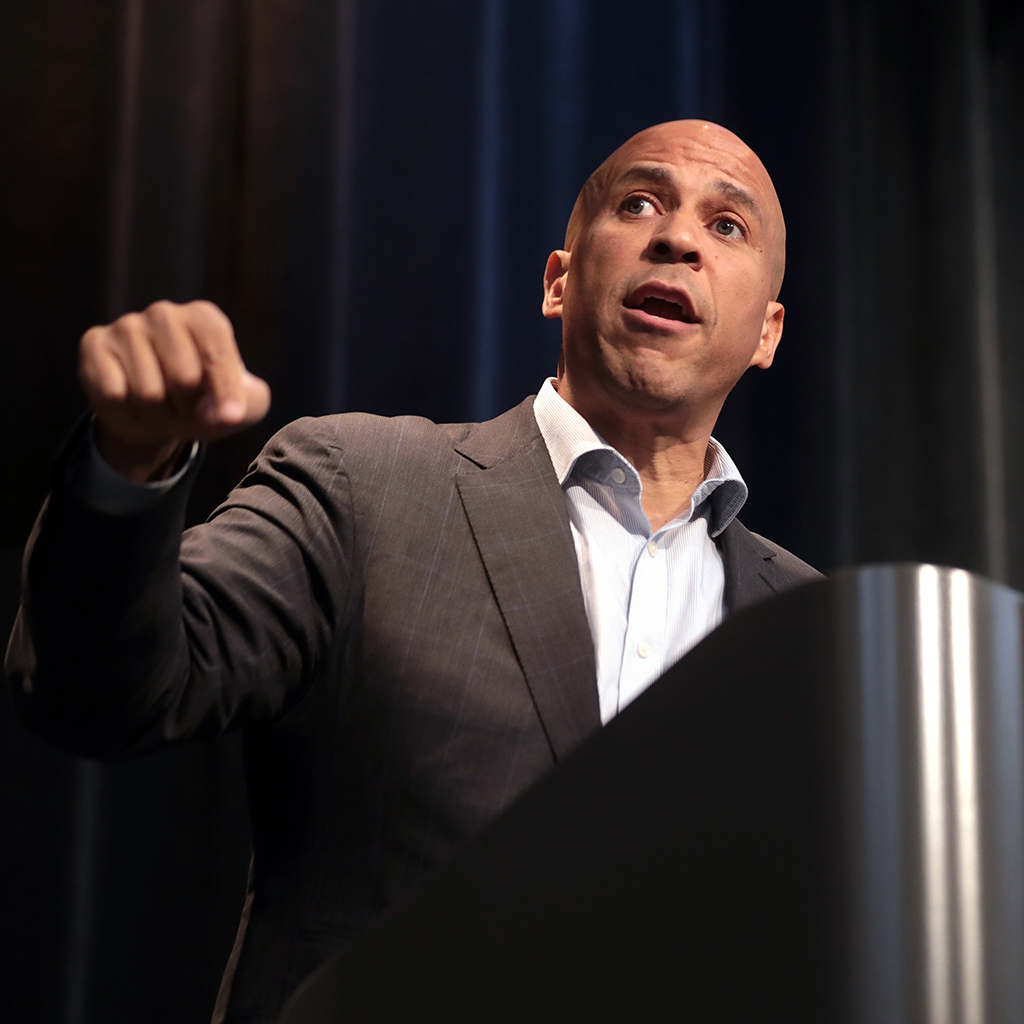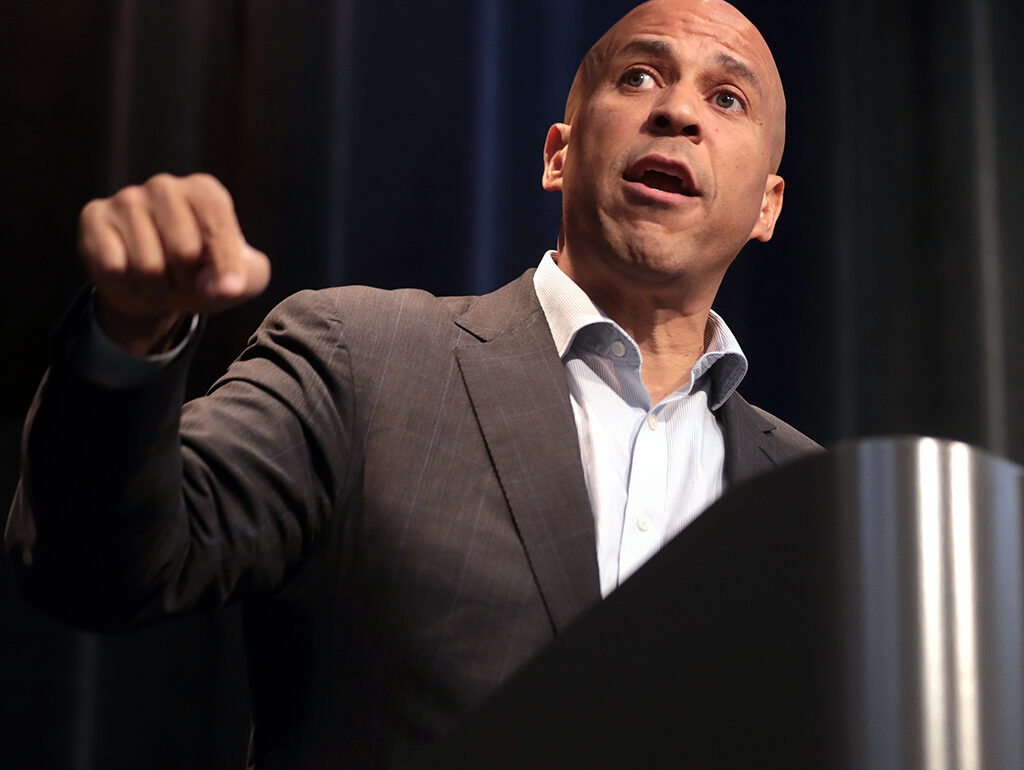
Gage Skidmore via Flickr
U.S. Sen. Cory Booker spoke for more than 25 hours this week. This image is from Aug. 21, 2019.
In an era when political discourse often devolves into performative sound bites and partisan posturing, genuine acts of principled leadership deserve our attention. U.S. Sen. Cory Booker’s marathon speech on the Senate floor represents something increasingly rare in American politics: the willingness to endure personal discomfort in service of deeply held convictions.
When Booker committed to speaking for hours on end – ultimately more than 25 – he was doing more than engaging in parliamentary procedure. He was demonstrating what it means to physically embody one’s values – to literally stand up for what you believe. In a political landscape where representatives frequently bemoan the inconvenience of lengthy meetings or debates, Booker’s willingness to push himself to physical limits serves as a powerful counterexample to the convenience-first mentality that has infected much of our civic life.
For students observing American politics, especially those from marginalized communities, witnessing a Black leader refuse to yield the floor – refuse to be silenced – carries profound symbolic weight. It echoes a long tradition of Black American resistance to injustice through endurance and persistence.
Regardless of where one falls on the political spectrum, Booker’s commitment to his convictions deserves recognition. In an age when politicians are often quick to compromise their stated values for political expediency, his steadfastness offers a master class in moral consistency. This is not about whether one agrees with every policy position Booker advocates; it’s about acknowledging the importance of elected officials who demonstrate the courage of their convictions.
Booker’s actions take on additional significance against the backdrop of a cultural climate that has grown increasingly antagonistic toward Black Americans and those living in poverty. We’ve witnessed the rollback of voting rights protections, challenges to affirmative action, attempts to restrict how racial history is taught in schools and rhetoric that demonizes urban communities and their residents.
In this context, when a Black senator refuses to yield the floor – when he insists on being heard despite attempts to limit his voice – he is not merely engaging in a procedural maneuver. He is demonstrating the core principle that democracy cannot function when certain voices are marginalized or silenced.
Booker stands in a long tradition of Black political leaders who have understood that their presence in halls of power is itself revolutionary, and that their responsibility extends beyond conventional politics. From Reconstruction-era politicians such as Hiram Revels and Blanche K. Bruce to modern figures such as John Lewis, Maxine Waters and Barack Obama, Black political leaders have carried the dual burden of representing their immediate constituencies while bearing witness to America’s ongoing struggle with its founding contradictions.
When Booker speaks until exhaustion, he channels the persistence of civil rights activists who staged sit-ins at segregated lunch counters, enduring abuse because they understood that justice sometimes requires physical endurance. He evokes the spirit of Fannie Lou Hamer, who famously declared she was “sick and tired of being sick and tired” but never stopped fighting.
For students observing American politics, perhaps the most valuable lesson in Booker’s marathon speech is that meaningful leadership often requires personal sacrifice. While many politicians structure their careers around comfort and convenience, transformative leaders throughout history have demonstrated willingness to endure discomfort on behalf of others.
Martin Luther King Jr. spent nights in jail cells. Lewis had his skull fractured on Edmund Pettus Bridge. Countless unnamed activists risked their livelihoods and lives to advance justice. Seen in this historical context, Booker’s willingness to speak until physically exhausted – while certainly less dramatic than these historical examples – nevertheless connects him to a tradition of leadership that prioritizes principle over personal comfort.
For young Black Americans in particular, seeing Booker refuse to be silenced carries profound significance. In a society in which Black voices continue to be marginalized, witnessing a Black senator command the floor of the world’s most powerful deliberative body – refusing to yield until he has said what needs saying – provides a powerful counternarrative to the persistent messages that certain voices matter less than others.
It’s entirely possible to disagree with Booker’s specific policy positions while still recognizing the importance of his example. In fact, the capacity to appreciate principled leadership across partisan lines is essential to a healthy democracy. When we reduce all political actions to partisan scorekeeping, we lose sight of the deeper democratic values that sustain our system.
Booker’s marathon speech stands as a reminder that democracy requires more than casual participation – it demands commitment, endurance, and occasionally, extraordinary effort. For students trying to make sense of America’s complex political landscape, this example of leadership offers something increasingly rare: an authentic demonstration that some principles are worth standing up for, even when your feet hurt and your voice grows hoarse.
In an age of convenience and shortcuts, that’s a lesson worth learning, regardless of political affiliation.
Tony Clark is a professor of African American literature.




